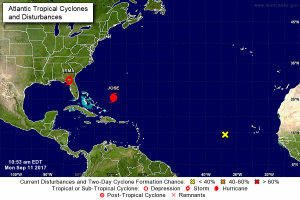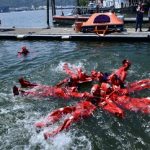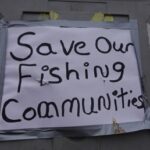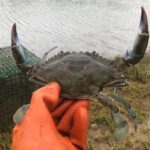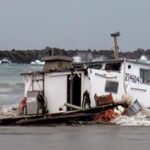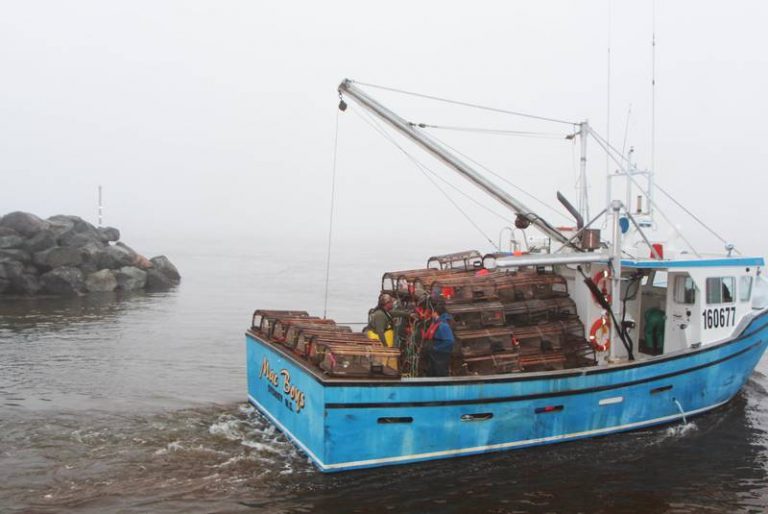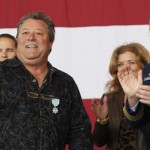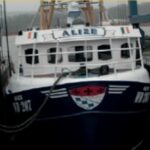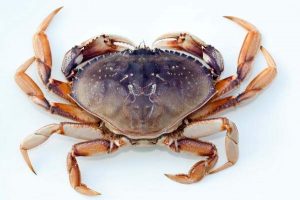Tag Archives: economic-disaster
Senator Warren hears the fears of a community poised to lose it all, the fishing community
 An airing of grievances and an airing of fears rained down on U.S. Sen. Elizabeth Warren Tuesday in her first meeting with the fishing community since she took office last month. The grievances were those of business people, descendants of the nation’s earliest industry, who in one form of another had made their way harvesting the sea, but now find themselves trapped by government edicts and policy said to be posing as biology, according to Vito Giacalone, the local port’s best known and connected leader. Read more
An airing of grievances and an airing of fears rained down on U.S. Sen. Elizabeth Warren Tuesday in her first meeting with the fishing community since she took office last month. The grievances were those of business people, descendants of the nation’s earliest industry, who in one form of another had made their way harvesting the sea, but now find themselves trapped by government edicts and policy said to be posing as biology, according to Vito Giacalone, the local port’s best known and connected leader. Read more
New England groundfishermen are taking the gloves off in the fight for survival
 175 Fishermen to Congress: Failed Government Policies Caused the Fishing Crisis, We’ve Done Nothing Wrong
175 Fishermen to Congress: Failed Government Policies Caused the Fishing Crisis, We’ve Done Nothing Wrong
– “The forced transition of our New England groundfish fishery to catch share management and hard TACs came with all sorts of rosy promises of resource abundance and economic stability,” they write. They also noted that many businesses were unable to survive the transition.
– Rather than producing the promised benefits, the transfer of the groundfishery to sector management has led to a prolonged period of economic instability. “There is no stability. There are only repeated, record reductions in catch limits. Prosperity is a discarded dream.”
– They blame the current state of the groundfishery on failed government management, writing: “Three weeks ago, NMFS Regional Administrator John Bullard told us at the Council meeting that this was our day of reckoning. This is not our day of reckoning – we’ve done nothing wrong to reckon. We didn’t cause this problem.” Instead, they maintain that the government does not have the science and data necessary to properly manage the fishery. “For too long we’ve been subjected to the volatility and futility of pretending to know the unknowable.”
“For nearly a decade now our fishery has fished at or below every catch limit set by the government on every stock. We lived within their quotas, but it is now our businesses, our families and our communities that will be paying the price.”
“Government cannot expect our industry to continue to be subjected to drastic cuts in allowable catches while placing additional, government-imposed expenses upon us.”
– They noted that, as the current catch share management system was being implemented, the Northeast Seafood Coalition publicly made clear that adequate federal funding and catch allocations would be needed for the system to properly function. They added: “Sure enough, here we are – less than 3 years after sector implementation – and the agency is telling us there is not enough money to monitor or enough fish to sustain our fishery. It’s difficult for many of us to believe that this was just a coincidence.” Read more and read the original letters with the signing fishermen
Fishing’s decline looms; will fish consumers notice?
GLOUCESTER, Mass. — His city’s best fishing days are long past it, but lifelong Gloucester resident Ron Gilson still sees what once was when he drives past what remains. “This is the lowest point,” he declared on a February day. “Tomorrow will be lower.” “They’re (govt) going to wipe it out!” said Gilson. “The only thing that’s going to be the same is the ocean you’re looking at.” In May, New England’s fishermen will again see a cut to the number of fish they can catch, this time so deeply that the historic industry’s existence is threatened from Rhode Island to Maine. But as hard as the cuts are likely to hit fishing communities, local seafood eaters may not notice at all. In the region’s markets, grocery stores and restaurants, imported fish dominate, and the cuts make that less likely to change. Read more
February day. “Tomorrow will be lower.” “They’re (govt) going to wipe it out!” said Gilson. “The only thing that’s going to be the same is the ocean you’re looking at.” In May, New England’s fishermen will again see a cut to the number of fish they can catch, this time so deeply that the historic industry’s existence is threatened from Rhode Island to Maine. But as hard as the cuts are likely to hit fishing communities, local seafood eaters may not notice at all. In the region’s markets, grocery stores and restaurants, imported fish dominate, and the cuts make that less likely to change. Read more
Cod quota rollover is tightened, too – “we intend to allow just under 2 percent” John Bullard
 NOAA Regional Administrator John Bullard has agreed to extend a 10 percent carryover of uncaught fishing quota to the new fishing year — for all stocks except the Gulf of Maine cod, for which a carryover and potential bycatch would account for fishermen’s total catch under dire new catch limits due to take effect May 1. ”For all allocated groundfish stocks, except Gulf of Maine cod, where the stock remains in poor condition and there is a high risk of exceeding overfishing limits, we intend to continue to allow fishermen to carryover up to their full 10 percent unused quota in 2013,” he said. “For Gulf of Maine cod we intend to allow just under 2 percent carryover in 2013 to avoid a risk of exceeding the overfishing limit. Read more
NOAA Regional Administrator John Bullard has agreed to extend a 10 percent carryover of uncaught fishing quota to the new fishing year — for all stocks except the Gulf of Maine cod, for which a carryover and potential bycatch would account for fishermen’s total catch under dire new catch limits due to take effect May 1. ”For all allocated groundfish stocks, except Gulf of Maine cod, where the stock remains in poor condition and there is a high risk of exceeding overfishing limits, we intend to continue to allow fishermen to carryover up to their full 10 percent unused quota in 2013,” he said. “For Gulf of Maine cod we intend to allow just under 2 percent carryover in 2013 to avoid a risk of exceeding the overfishing limit. Read more
As Fisheries Struggle, Debate Heats Up Over How to Help
![]() Russell Sherman stood at the wheel of his boat, the Lady Jane, as light faded and his crew prepared to dock for the night. He made $19,800 fishing last year, he said, and at 64 is afraid he will go into foreclosure. “People are on the hook for money, and they’re not going to be able to pay it off,” said Mr. Sherman, who is a founding member of the Northeast Seafood Coalition, an industry group that supports fishermen and has pushed against deep cuts to the industry. “Desperate situation.” Sadly, Read more here
Russell Sherman stood at the wheel of his boat, the Lady Jane, as light faded and his crew prepared to dock for the night. He made $19,800 fishing last year, he said, and at 64 is afraid he will go into foreclosure. “People are on the hook for money, and they’re not going to be able to pay it off,” said Mr. Sherman, who is a founding member of the Northeast Seafood Coalition, an industry group that supports fishermen and has pushed against deep cuts to the industry. “Desperate situation.” Sadly, Read more here
Senators press for fish disaster aid – Northeast groundfishery, blue crab and oyster fishery of Mississippi, Chinnock salmon fishery of Alaska
![]() ”We believe that it is the responsibility of the administration, after declaring these disasters, to request the funding to respond to them,” the senators wrote. “Until funding is made available for these declarations, the affected fishermen will continue to struggle during a critical time of need. For those that are suffering and the fishing communities they live in, time is of the essence. They simply cannot wait for another funding cycle for help to arrive.”
”We believe that it is the responsibility of the administration, after declaring these disasters, to request the funding to respond to them,” the senators wrote. “Until funding is made available for these declarations, the affected fishermen will continue to struggle during a critical time of need. For those that are suffering and the fishing communities they live in, time is of the essence. They simply cannot wait for another funding cycle for help to arrive.”
Sens. Jack Reed and Sheldon Whitehouse of Rhode Island, Charles Schumer and Kirstin Gillibrand of New York, Jeanne Shaheen of New Hampshire and Mark Begich of Alaska,Elizabeth Warren and William Cowan, Susan Collins of Maine, Thad Cochran and Roger Wicker of Mississippi and Lisa Murkowski of Alaska., Independent Angus King.
In the House, Congressman John Tierney, whose district includes all of Cape Ann, announced Friday an agreement with a bipartisan group of lawmakers on a different solution the same problem. Joining him in the initiative were Congressmen Ed Markey, William Keating, and Stephen Lynch of Massachusetts, Walter Jones, a North Carolina Republican, and David Cicilline and Jim Langevin, Rhode Island Democrats.
Read more here
Congressman John Tierney and eleven other NE delegates urge NOAA to continue a full subsidy of at-sea monitoring costs
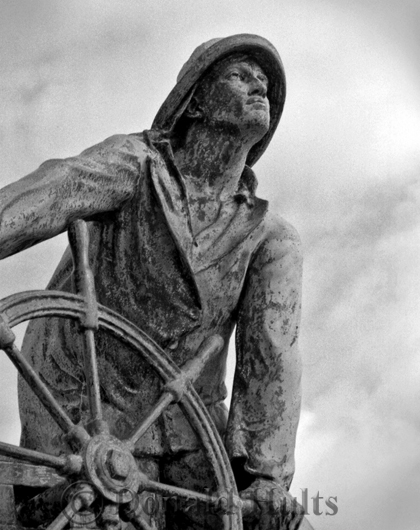 Congressman John Tierney, six of his colleagues in the Massachusetts congressional delegation, and five more from Maine and New Hampshire have written to the acting commerce secretary, formally urging the government to find a way to continue a full subsidy of at-sea monitoring costs while the industry absorbs drastic cuts in catch limits. Read more here
Congressman John Tierney, six of his colleagues in the Massachusetts congressional delegation, and five more from Maine and New Hampshire have written to the acting commerce secretary, formally urging the government to find a way to continue a full subsidy of at-sea monitoring costs while the industry absorbs drastic cuts in catch limits. Read more here
Maine lawmakers urge help for fishermen – The state’s members of Congress join others from the region
WASHINGTON – Lawmakers from Maine and two other states are urging federal regulators to “exercise all authority under the law” to help the New England groundfishing fleet weather severe catch limits that many fear could decimate the industry. Rep. John Tierney, D-Mass., plans to submit legislation seeking disaster funding for the New England fishery as well as other U.S. fisheries. Tierney said his bill would tap money collected on imported fish to pay for the disaster relief and additional scientific research. Read more here
New England – Drastic Cuts to Imperiled Cod Fishery
 Rip Cunningham, chairman of the New England Council, told the Gazette this week it was a difficult process. “I continue to think it was a tough decision to make,” he said. “Given the circumstances, I think the council made the right decision. The council understands that when they make their decision there are real people that are going to be impacted. I certainly hope everyone is thinking that we have to do a balance between mitigating short-term impacts to the fishermen and the long-term impacts to the resource.” Read more here
Rip Cunningham, chairman of the New England Council, told the Gazette this week it was a difficult process. “I continue to think it was a tough decision to make,” he said. “Given the circumstances, I think the council made the right decision. The council understands that when they make their decision there are real people that are going to be impacted. I certainly hope everyone is thinking that we have to do a balance between mitigating short-term impacts to the fishermen and the long-term impacts to the resource.” Read more here
Editorial – Save the fish, but also help the fishermen
This newspaper understands the angry response severe restrictions provoked among those whose families have earned their living from the sea for generations – “I’m leaving here in a coffin,” one fisherman from New Bedford, Mass., complained – but the council had no viable options…..We encourage NOAA to adopt the restrictions, as painful as they will be to New England fishermen, since they are the best way to give cod, now on the verge of extinction, a chance to replenish. Read more here at The Day
Editorial: Lawmakers must force NOAA’s hand on fisheries
 Yes, NOAA can show “scientific” data suggesting that these dire cuts — up to 77 percent for the Gulf of Maine cod catch – may be necessary. Yet, NOAA also had 2008 survey data that showed many of the cod stocks were already rebuilt. And remember that the latest data is off an assessment model that did not include any input from rank-and-file fishermen, meaning it’s no more credible than the admittedly bogus data used in the “Trawlgate” fiasco of 1999-2000, when NOAA conceded its statistics were hopelessly flawed, yet still used them to set stock limits. Read more
Yes, NOAA can show “scientific” data suggesting that these dire cuts — up to 77 percent for the Gulf of Maine cod catch – may be necessary. Yet, NOAA also had 2008 survey data that showed many of the cod stocks were already rebuilt. And remember that the latest data is off an assessment model that did not include any input from rank-and-file fishermen, meaning it’s no more credible than the admittedly bogus data used in the “Trawlgate” fiasco of 1999-2000, when NOAA conceded its statistics were hopelessly flawed, yet still used them to set stock limits. Read more
Drastic groundfishing cuts approved by fishery management agency
UPDATE… 6:27 PM Wed. New England Fisheries Management Council recommends cutting Cod fishing limits in the Gulf of Maine by 77% and in George’s Bank by 55%. This is critical, fisherman say, because catching cod leads to catching other fish like haddock. They say the cuts are devastating. Watch video
Officials Back Deep Cuts in Atlantic Cod Harvest to Save Industry –
New York Times “I do not deny the costs that are going to be paid by fishermen, families, communities. They are real. They will hurt.” The problem, he said, is not government inflexibility, as fishermen have suggested, but the lack of fish. “It’s midnig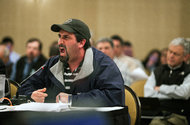 ht and getting darker when it comes to how many cod there are,” he said. “There isn’t enough cod for people to make a decent living.” But opponents said the limits would not help save the industry.
ht and getting darker when it comes to how many cod there are,” he said. “There isn’t enough cod for people to make a decent living.” But opponents said the limits would not help save the industry.
“Right now what we’ve got is a plan that guarantees the fishermen’s extinction and does nothing to ameliorate it,” David Goethel, a New Hampshire-based fisherman and biologist, said as he cast his vote against the plan.
Fishermen were furious with the result.“I’m leaving here in a coffin,” said Carlos Rafael, who owns a commercial fishing business in New Bedford, Mass. “With all these cuts, I won’t be able to keep half of my fleet working. I’ll have to cut down from 20 groundfish boats to maybe 5or 6.” Read more
Keep the Fishing Ban in New England – CALLUM ROBERTS, YORK, England
![]() Where were the regulators through all of this? Always one step behind and perennially ineffective. Federal law delegated to the New England Fishery Management Council authority to manage the fishery from 3 miles to 200 miles off the coast, but the council didn’t see its job as speaking up for fish. This body was dominated by fishing interests, so when faced with a choice of fishing now or cutting back the catch to assure the fishery’s future, the council’s decisions often favored the short term. With such decisions, collapse of the fishery was inevitable. When it happened in the late 1980s, it was brutal and swift. By the early 1990s, all agreed that something had to be done. The council reinvented its approach to fishery management.Read more
Where were the regulators through all of this? Always one step behind and perennially ineffective. Federal law delegated to the New England Fishery Management Council authority to manage the fishery from 3 miles to 200 miles off the coast, but the council didn’t see its job as speaking up for fish. This body was dominated by fishing interests, so when faced with a choice of fishing now or cutting back the catch to assure the fishery’s future, the council’s decisions often favored the short term. With such decisions, collapse of the fishery was inevitable. When it happened in the late 1980s, it was brutal and swift. By the early 1990s, all agreed that something had to be done. The council reinvented its approach to fishery management.Read more
Crippling ‘reality’ arrives for New England fishermen
The few fishermen who still ply New England’s waters for cod, haddock and other groundfish are bracing for a double dose of bad news this week…..as expected, slash already reduced catch limits by another 70 percent to 80 percent to protect fish populations that scientists now say are much smaller than previously thought….”If the collective goal is to rebuild stocks … then if we don’t start looking at the causes of the problem, we are not going to find a solution.”…..”I don’t know why we should believe the science when three years ago they said the stocks were rebuilding,” Read more
Editorial: Fed lawmakers miss key point on fishery ‘disaster’
That’s the fact that, while Superstorm Sandy brought unforeseen cleanup costs, the economic disaster recognized by the aptly named Blank and her Commerce and NOAA colleagues wasn’t unforeseen at all. And despite claims to the contrary in her own disaster declaration, it is not merely a case of declining stocks and other natural factors. Read more
Winter tough on many levels for local fishing fleet – Eric Anderson
Those committed to the profession still contribute greatly to this local economy with their spending, which make them an integral and longstanding participant in this community. Regardless of how fast changes are taking place, communit ies need to be careful not to lose their founding industries that add so much to the local identity. I hope that most might agree the fishing industry presents a positive component of our community that needs attention and elevated exposure, considering the variety of challenges that it endures. Read more
ies need to be careful not to lose their founding industries that add so much to the local identity. I hope that most might agree the fishing industry presents a positive component of our community that needs attention and elevated exposure, considering the variety of challenges that it endures. Read more
House plan guts aid for fisheries
Two newly released U.S. House Rules Committee amendments combine to roughly match the Senate appropriation totaling $60 billion for Superstorm Sandy relief, but virtually eliminate the $150 million for fisheries disaster aid a imed at providing relief to the Northeast groundfishery, including fishermen working out of Gloucester. One amendment for $17 billion, filed by Rep. Hal Rogers, a Kentucky Republican and chairman of the House Appropriations Committee, contains no money for the fisheries disasters of Massachusetts, four other New England states and New York, as well as Mississippi’s oyster fishery and Alaska’s Chinook salmon fishery. Read more
imed at providing relief to the Northeast groundfishery, including fishermen working out of Gloucester. One amendment for $17 billion, filed by Rep. Hal Rogers, a Kentucky Republican and chairman of the House Appropriations Committee, contains no money for the fisheries disasters of Massachusetts, four other New England states and New York, as well as Mississippi’s oyster fishery and Alaska’s Chinook salmon fishery. Read more
Guest View: The end of “overfishing”? By Dr.Brian J. Rothschild (new england trusted)
Brian J. Rothschild is the Montgomery Charter professor of Marine Science and Technology at the UMass Dartmouth School for Marine Science and Technology.
The necessity of imposing the cuts is not clear. The council’s scientific committee has had difficulties reaching consensus on the management of key stocks. The Council is faced with a dilemma. If the stocks are down and the cuts are necessary, how do we mitigate the impact of the cuts on the people who work in the fishing industry and fishing communities, and then how do we plan for the future? At the same time, if the stocks are not down and the cuts are not necessary, how do we promote stability within the fishing industry and fishing communities, and then how do we plan for the future?
To understand the council’s short- and long-range plans on how to deal with its dilemma is crucial, particularly since the condition of the groundfish stocks may not be as bad as it seems. Read More
Closed Areas need fed’s OK to open
 The New England Fishery Management Council has voted to recommend giving commercial groundfishermen access to parts of five areas that have been closed to them for many years. The request to open closed areas to commercial fishing came days before the NOAA Science Center issued a report on the 2011 fishing year that contained the revelation that only 41 percent of allocated fish were landed in 2011. Read More
The New England Fishery Management Council has voted to recommend giving commercial groundfishermen access to parts of five areas that have been closed to them for many years. The request to open closed areas to commercial fishing came days before the NOAA Science Center issued a report on the 2011 fishing year that contained the revelation that only 41 percent of allocated fish were landed in 2011. Read More
Your View: Fishery council must reject unreliable assessments – By Richard Canastra – southcoasttoday
I nearly always attend New England Fishery Management Council meetings in person, but last month, I was unable to attend the meeting in Newport, and instead listened to the proceedings online. I found that listening, and not physically being there, gives you a different perspective on a meeting. You hear more intently. There are fewer distractions. Examples seem clearer. Patterns emerge. There are some predictable patterns in life. When there is an accident, at the end of the traffic jam you find a police officer. When you go to a restaurant, at the end of dinner the bill comes. And when you attend a fisheries management council meeting that is dealing with a crisis, there is usually a bad stock assessment.
Bad stock assessments have become as predictable as the sunrise. Read More
Share and Share Alike
As a citizen advocate of the fishing industry, I have no confidence in NOAA stock assessments.
I spend a lot of time reviewing material, attempting to convey the results to as many people possible.
These listening sessions allow, as Mr Canastra stated, patterns to emerge.
The patter of Bill Karp, and Sam Rauch deviates not from the typical bureaucratic structure, much to my disappointment after listening to them from various venues, and reading a lot of information.
The revelations of the Georges Bank Yellowtail Flounder Working Group Meeting May 23, 2012, are the foundation of my opinion to condemn the stock assessments as a tool for fishery management, while enforcing Mr Canastras belief that the proper equipment is not being utilized to sample yellow tail flounder abundance.
As stated, patterns have emerged. The pattern of over looking details that have detrimental affects on stock assessments and confidence in them.
At the The New England Fishery Management Council’s three-day meeting in Plymouth Ma on 9/25/2012, a major detail confirmed the retrospective patter of no confidence in stock assessments conducted by NOAA.
During the 54th Stock Assessment Workshop (SAW)/Stock Assessment Review Committee (SARC) Meetings, a fisherman asked a question that received a hollow shrug of the shoulders answer that I find alarming, and telling that these assessments are substandard and incomplete.
The question was, “why is there no mention of herring as a predator species” in the ground fish assessment?
The answer. ” The SSC was, ah, not presented, ah, ah herring as a, ah, predator species….”
Yes. A Retrospective Pattern of the science used to mismanage this industry is established.
No confidence.
NOAA region chief Bullard hedges on interim limits
The coalition theory was based on an interpretation of the Magnuson-Stevens Act for building a second year of relief — “reducing” rather than “ending” overfishing — while a plan to bring the stock to maximum sustainable yield is crafted.,“I’m not going to opine on whether you can squeeze another year out of (the Magnuson regulations),” Bullard said in a Thursday interview at the Times. “We’re willing to take a look at this at the meeting.” Read More






 t a slower rate than expected. And they will not meet management targets to recover to healthy levels unless something changes dramatically.
t a slower rate than expected. And they will not meet management targets to recover to healthy levels unless something changes dramatically. id in 2012. And as reported by Richard Gaines of The Gloucester Times, two independent analysts, from the Northeast Seafood Coalition and the School of Marine Science and Technology at University of Massachusetts-Dartmouth, noted troubling behavior of the data in NOAA’s report.
id in 2012. And as reported by Richard Gaines of The Gloucester Times, two independent analysts, from the Northeast Seafood Coalition and the School of Marine Science and Technology at University of Massachusetts-Dartmouth, noted troubling behavior of the data in NOAA’s report. ![environmental-watchdog[1]](https://fisherynation.com/wp-content/uploads/2012/09/environmental-watchdog1.jpg)
 SEAFOOD.COM NEWS by John Sackton (Editorial Comment) – June 15, 2011 A
SEAFOOD.COM NEWS by John Sackton (Editorial Comment) – June 15, 2011 A




























